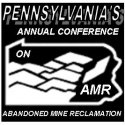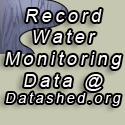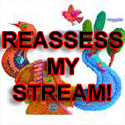EPCAMR is proud to host approximately 200 Trout Eggs-Fingerlings annually. Below is a live feed! You can watch them develop right before your eyes. Sorry, there is no sound.
You are viewing our demonstration trout in the classroom tank located in our office. If you would like to see them, test water and/or feed them in person, please set up a visit with EPCAMR staff. The trout eggs arrived the second week of January. We are excited to raise these little brookies and release them into nearby approved trout stream. We would like to thank Stanley Cooper Chapter of Trout Unlimited (for covering a majority of the supply costs), PA Trout Unlimited and PA Fish and Boat Commission for their support and training.
Below is archive footage of different steps of development/activities. Reminder, these are live feeds. We realize they need some editing, but we didn’t want to halt the availability of the videos. We will get them off DailyMotion, edit them and repost them at a later time.
Acclimating the eggs to the tank.
Counting and sorting the viable eggs. We typically end up with ~200 viable eggs. The milky white “dead” eggs are sorted out and the yellowish pink live eggs are placed in the redds.
After the eggs hatch, they are in the Alevin Stage. The alevin have huge yolk bellies that they feed off for several more weeks.
Twin Alevin! We often get twins that are connected in different places or ones that are curled up around their yolk belly. Unfortunately, these guys don’t survive to be released but if they learn to eat and swim they will grow.
EPCAMR’s participation in the Trout In the Classroom program was made possible through a unique partnership between PA Fish and Boat Commission and PA Council of Trout Unlimited. This partnership, coupled with assistance from local conservation organizations, was created to introduce Pennsylvania students to coldwater resources and their importance to all communities. The partnership also provides brook trout eggs, trout food, technical assistance, curriculum connections and teacher workshops each year.











